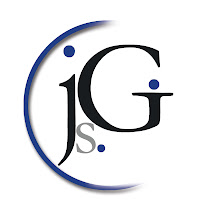But a recent – and growing – challenge has been that the Early Bird cash discounts do not generate the results they once did – they have, I would argue, evolved into a commoditized incentive. It's expected, there is nothing particularly compelling about it, and while certain audience segments do register early to gain the savings, it no longer drives the incremental registrations/revenue it once did. This is a shame, as these deadlines have traditionally been strong early indicators of an event’s overall ultimate performance.
So what to do to revive the glory days of Early Birds? We need to move away from a straight cash discount and link it to the prospect whenever possible. A few thoughts:
- As a straight incentive, personalize it as much as possible. Pending audience size and leverage you have with a hotel, I have successfully utilized a "room upgrade" raffle (who wouldn't like the opportunity to walk into a suite vs. standard hotel room?) as one example.
- Given today's challenging environment, another thought would be to appeal to people's sense of social responsibility - while frankly I have not used it as an Early Bird incentive, I have conducted market surveys utilizing a small charitable donation for each response received; this tactic can certainly be translated to a small donation for each registration received prior to a certain date. (The amount/charity can also be called out on site, bringing the organization additional recognition.)
- Content-based incentives – white papers, on-site meet-and-greet with speakers, special networking events all continue to be effective ways to get people to act early.
The one common denominator of the above, again, is that they are personal – they have direct benefit/impact to the person receiving it (as opposed to saving a couple hundred dollars – a corporate savings, not a personal one.)
One additional note - while early registrations are a key indicator to an event's success, I also suggest you ensure you have an attendee retention strategy in place. Individuals who register early also have a high cancellation rate (as Early Birds are more predisposed to having plans change than a person registering a week or two before an event), negating the good work you do to acquire them. Having the registration team prepared with a talk track, emails in place for individuals canceling online, and a strong ‘buzz’ leading up to an event to keep registrants engaged are all important elements to incorporate into the Early Bird retention efforts.
Best of luck!
P.S. In a fit of self-promotion, I invite everybody to check out – and Tweet (if you Twitter) my new site, www.johnsgibb.net



